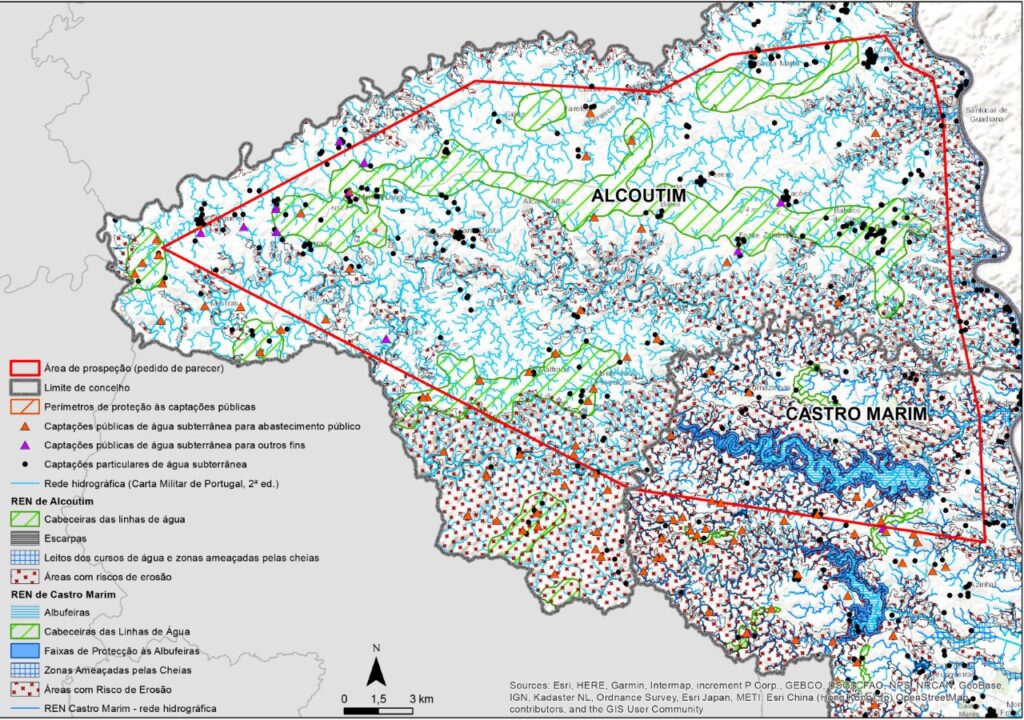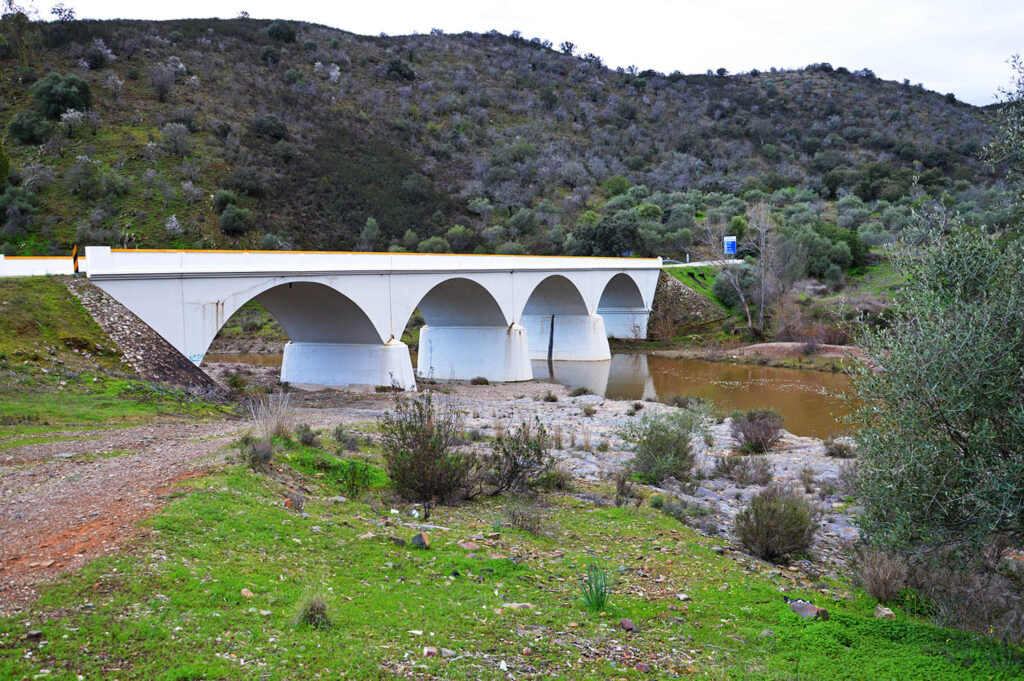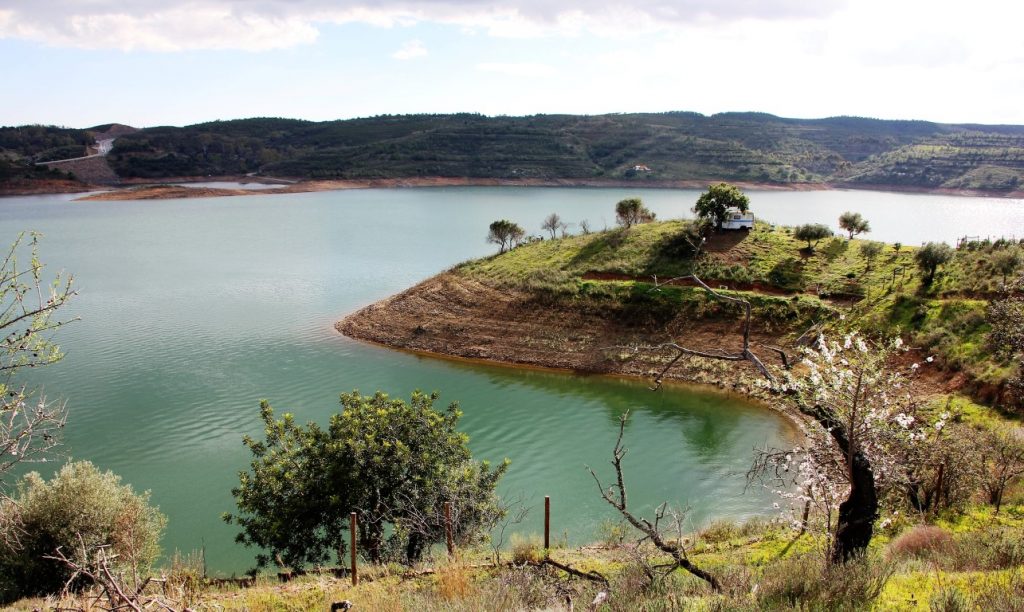The eventual exploitation of ores in the municipalities of Alcoutim and Castro Marim, for which the company Emisurmin applied for prospecting and research rights, could have "very significant" negative impacts on surface waters and "come to negatively influence the quality of the water", in an area that covers the catchment basin of the Odeleite Dam, denounced the Movimento de Salvaguarda do Nordeste Algarvio.
Today, Wednesday the 14th, at 18 pm, an informative meeting will take place in Furnazinhas, in Castro Marim, aimed at the population.
The objective of today's session, like those that took place before in the municipality of Alcoutim, «without the necessary publicity to mobilize the population», is to make the affected populations aware of the process, revealed the Movimento de Salvaguarda do Nordeste Algarvio, which opposes to the «concession of prospecting and research/exploitation rights for ores in the area designated by Ferrarias».
One of the major fears of the group of citizens is linked to water resources, since the mining activity produces waste, including dams of mud and acidic water.
In the event of drainage of these acidic waters, the affected waters, “in general, are not potable, presenting high levels of various substances, namely heavy metals, which condition their use, whether domestic or industrial. In this way, the degradation of water quality can lead to the impossibility of its use».
In addition to this risk, there are others, such as atmospheric pollution, the accumulation of solid waste and mining sites becoming inactive and degraded.

In practice, Emirsurmin intends to look for and eventually exploit «mineral deposits of gold, silver, copper, lead, zinc and associated ores» in the municipalities of Alcoutim and Castro Marim, in an area of 494 square kilometers, in the parishes of Alcoutim and Pereiro, Martim Longo and Vaqueiros (Alcoutim) and Azinhal and Odeleite (Castro Marim).
At this moment, says the movement, «the process has already gone beyond the stage of issuing an opinion on the existing legal conditions by public entities, as well as the public consultation», which is why «it is important to clarify, with transparency and clarity, what is at stake, what are the possible benefits and negative impacts for the areas directly affected by the project, as well as the entire territory that is downstream of the intervention (Castro Marim and Vila Real de Santo António).
Also because, in the view of the group of citizens, the process should not have gone this far, taking into account the warnings that came from entities such as the Alcoutim Chamber, the Commission for Coordination and Regional Development (CCDR) of the Algarve and the Portuguese Agency for the Environment (APA).
The most worrying alerts, because they validate the movement's fears, come from the APA/Administration of the Hydrographic Region of the Algarve.
For this entity, the systems that deserve greater concern are the reservoirs and surface waters, namely «the catchment basin of the Albufeira de Odeleite, the main source of water in the Sotavento of the Algarve». Therefore, the APA warns of “the high demand and likely constraints on the possible future exploitation of mineral deposits, namely with regard to the risk of water contamination”.
«This aspect assumes an added relevance in view of the situation of water scarcity that the region has gone through in recent years and the fact that the different climate change scenarios point to a substantial worsening of the situation by the end of the century, with greater severity in Sotavento».
The area under study, adds the APA/ARH, «interferes with a very significant part of the Foupana stream basin, practically the last watercourse with potential for regularization and possible reinforcement of water sources in the future, eventually through the execution of an abstraction for public supply in the water course».
The Chamber of Alcoutim, for its part, drew attention to the fact that the prospecting polygon includes “urban occupation zones, archaeological sites and other areas that, due to their location, are subject to interference in human activity and cultural and natural wealth ».
«Depending on the location of the intervention, it may impair the quality of life of local inhabitants, interfere with the potential tourist, social and landscape attraction of the territory, as well as interfere with possible agricultural, forestry or agroforestry spaces», warned the Municipality.
CCDR Algarve points out that the prospecting area overlaps «reservoirs, banks and floodplains, forestry and agroforestry areas, classified properties, REN, RAN and Site – PTCON0036 Guadiana of the Natura 2000 Network and urban areas, for which there are many strong constraints, and the exploration operation may even be subject to an Environmental Impact Assessment».

Only the risks pointed out by these entities – which, despite this, did not put obstacles to the attribution of the license, as long as the constraints were respected -, «would be enough to make this claim unfeasible», defends the Movimento de Salvaguarda do Nordeste Algarvio.
However, «this did not deserve the attention of political decision-makers, who ended their opinions with the eternal fallacy of "nothing to oppose, as long as the conditions are fulfilled", because they consider that it is only in the phase of "prospecting and research" and , therefore, at a more or less innocuous moment in this process».
The movement does not share this perspective and makes use of the legal framework for this type of license to justify it.
Legally, an entity that guarantees a prospecting and research contract earns the right to "obtain the concession to exploit the disclosed resources, provided that the applicable legal and contractual conditions are met, without prejudice to the possibility of refusing to grant the exploration concession for reasons of public interest and by compensating the applicant for the amount of direct costs incurred".
In other words, the State is not then obliged to grant an exploration license, but if it does not, it will have to compensate the company.
From the moment a company wins an exploration concession, the law also says, it can «use, observing the legal constraints, the waters and other assets of the public domain of the State that are not found to be used based on another legitimate title; (...) e) Request the expropriation for public and urgent use of the land necessary to carry out the works and the implementation of the respective annexes, even if outside the demarcated area, being the same allocated to the concession; f) Obtain the constitution, in its favour, by administrative act, of the easements necessary for the exploitation of the resources».
In this way, says the movement, if «the applicant is granted prospecting and research rights, he automatically has access to the exploration rights, so what is truly at stake is the exploitation of the resources and not just their prospecting».
Also worrying, in the view of the group of citizens, is the fact that «the private properties integrated in the project area may be expropriated, as well as those in the surrounding areas or others that may be considered necessary. The legislation that manages this territory itself may be suspended to accommodate this claim».
«It is also underlined that the lack of mandatory opinions from the Institute for Nature Conservation and Forests, from the Regional Directorate of Agriculture and Fisheries of the Algarve, from the Regional Directorate of Culture, from the Chamber of Castro Marim, which are mandatory, makes the whole this process», concludes the Movement for the Safeguarding of the Northeast Algarve.

















Comments